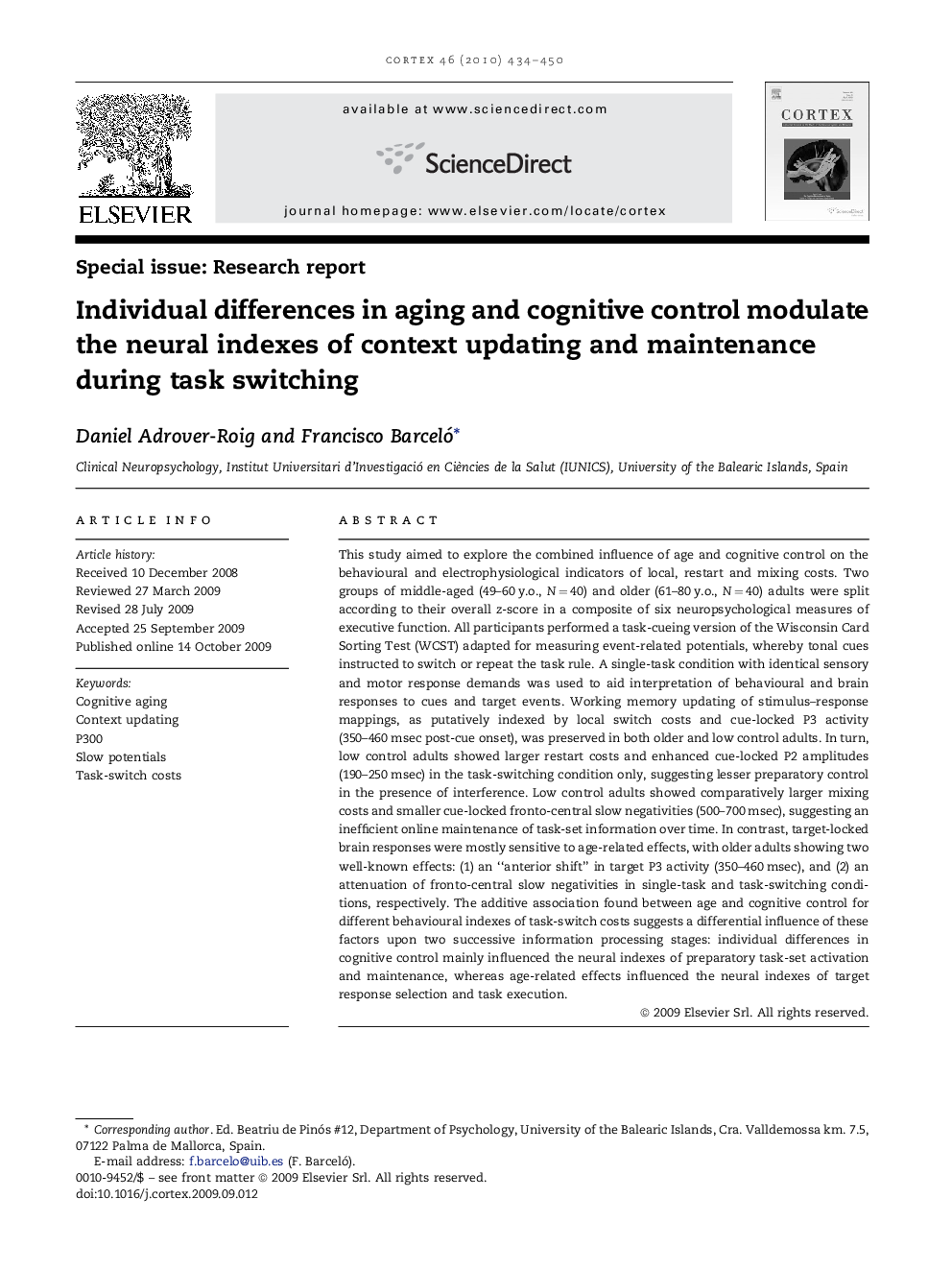| Article ID | Journal | Published Year | Pages | File Type |
|---|---|---|---|---|
| 942527 | Cortex | 2010 | 17 Pages |
This study aimed to explore the combined influence of age and cognitive control on the behavioural and electrophysiological indicators of local, restart and mixing costs. Two groups of middle-aged (49–60 y.o., N = 40) and older (61–80 y.o., N = 40) adults were split according to their overall z-score in a composite of six neuropsychological measures of executive function. All participants performed a task-cueing version of the Wisconsin Card Sorting Test (WCST) adapted for measuring event-related potentials, whereby tonal cues instructed to switch or repeat the task rule. A single-task condition with identical sensory and motor response demands was used to aid interpretation of behavioural and brain responses to cues and target events. Working memory updating of stimulus–response mappings, as putatively indexed by local switch costs and cue-locked P3 activity (350–460 msec post-cue onset), was preserved in both older and low control adults. In turn, low control adults showed larger restart costs and enhanced cue-locked P2 amplitudes (190–250 msec) in the task-switching condition only, suggesting lesser preparatory control in the presence of interference. Low control adults showed comparatively larger mixing costs and smaller cue-locked fronto-central slow negativities (500–700 msec), suggesting an inefficient online maintenance of task-set information over time. In contrast, target-locked brain responses were mostly sensitive to age-related effects, with older adults showing two well-known effects: (1) an “anterior shift” in target P3 activity (350–460 msec), and (2) an attenuation of fronto-central slow negativities in single-task and task-switching conditions, respectively. The additive association found between age and cognitive control for different behavioural indexes of task-switch costs suggests a differential influence of these factors upon two successive information processing stages: individual differences in cognitive control mainly influenced the neural indexes of preparatory task-set activation and maintenance, whereas age-related effects influenced the neural indexes of target response selection and task execution.
